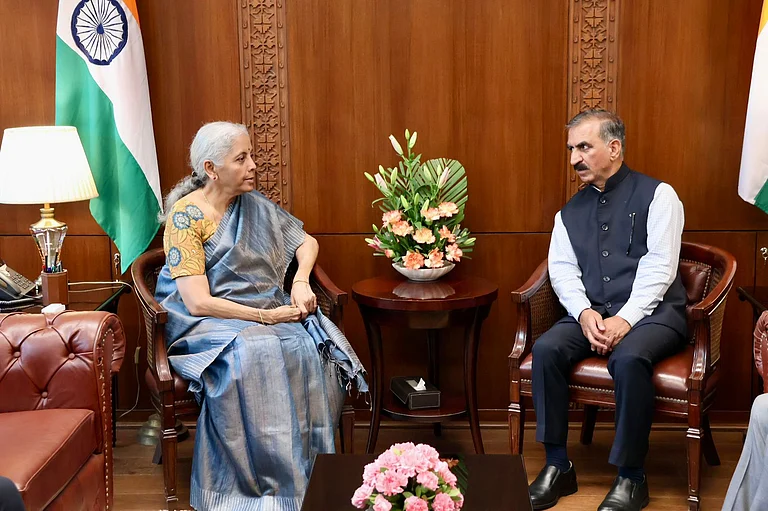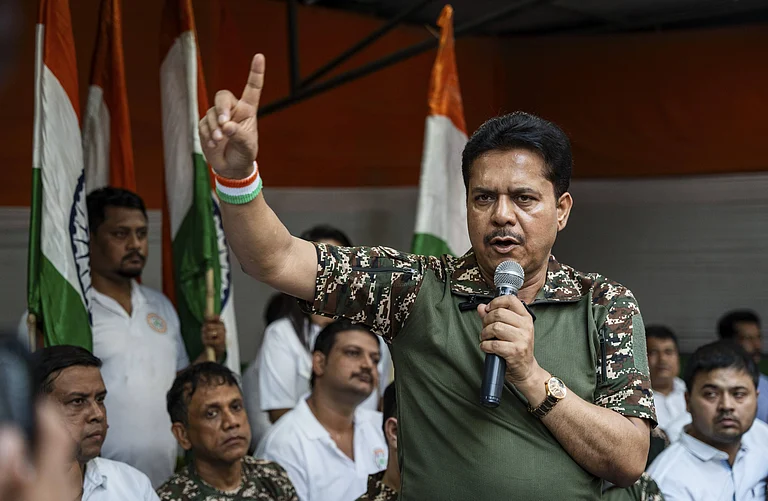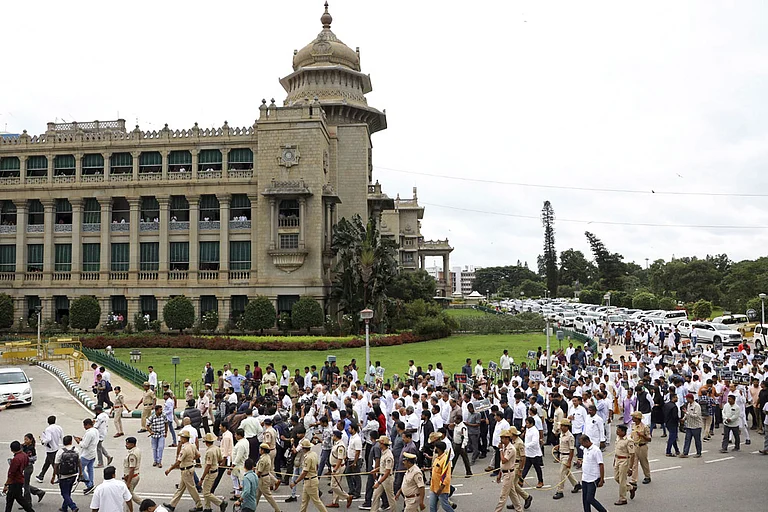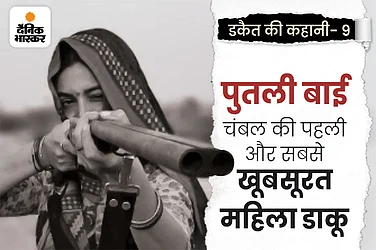Union Finance Minister Nirmala Sitharaman on Monday accused the Congress of placing a "politically-vitiated narrative" with "vested interests" as they claimed discrimination on distribution of funds to opposition-ruled states.
During a session in the Lok Sabha, Congress leader Adhir Ranjan Chowdhury questioned the Karnataka government's claim that the Centre is withholding funds due to it.
In response, Finance Minister Sitharaman stated that such a situation is highly unlikely as the central government follows the recommendations of the Finance Commission, and the system is well-placed to prevent such discrepancies.
"This apprehension that some states are being discriminated against is a politically-vitiated narrative which, I am sorry to say, vested interests are happy to go about saying," she reportedly said during Question Hour.
According to PTI, Sitharaman mentioned that no Union finance minister can play with the Finance Commission's recommendations.
Sitharam said, "This is just not a possibility that any finance minister can intervene to say that 'I don't like this state, stop payment' ... It can't happen that way. The system is well placed."
What was Adhir Chowdhury's claim?
Congress leader Adhir Chowdhury reportedly stated, "The latest example is Karnataka... where entire ministry has been agitating against the indiscriminate attitude of your administration. Few months ago everything was hunky dory. But, after the new government (came), since then trouble has started."
"Karnataka is the state that generates the second-highest tax in the country and it is sad that our state gets a setback every time. For the last five years, the BJP government has been ignoring Karnataka. This is unfair," he added.
Karnataka Deputy Chief Minister DK Shivakumar has reportedly claimed that the Congress' state unit, comprising all MLAs, MLCs, and MPs, will stage a protest in New Delhi on February 7 against the Union government for not allotting adequate funds to the state in the interim Budget.
How has Sitharaman defended against the claims?
Sitharaman stated that she lacks the authority to modify the regulations of the Finance Commission. "I have no right to change the rules as per my whims and fancies … I have no role to play. In fact, I have to follow 100 per cent," she explained.
"That is what I have done in my term. All finance ministers do that. Implement the recommendations of the Finance Commission. It is done without fear or favour," she further said.
Sitharaman added Chowdhary claimed that she was working "politically" and said everything was hunky dory till six months ago.
"I want to say, till six months ago, all was hunky dory. What is going wrong now? Have you spent on items which you were not supposed to? I am not even questioning. Do spend it but don't put the blame on me. Don't put blame on the Centre as it goes by the book," she said.
"If the expenditure is going in areas which it cannot sustain by your Budget, I am not answerable. Which government was there till six months ago is not my role to talk about. If it was hunky dory then and now it is not, introspect, please," she added.
The finance minister stated that if there was a suggestion that she was holding back the funds, all involved parties should communicate with the Finance Commission, highlighting their needs, requirements, and current situation.
The commission, which is a constitutional body, would then make a decision based on the information provided.
Further, Sitharaman claimed that the Karnataka deputy chief minister had met her, conveyed to her the state's issues and she heard him.
"I told him matter of fact. I can't do anything which the Finance Commission tells me not to do. Unless the Finance Commission asks me to do (something), I can't do anything. I don't have the discretion. Please don't imagine that I have the discretion to play around with the Finance Commission's recommendations. Please talk to the Finance Commission," she reportedly said.
Sitharaman also said she follows the Finance Commission's recommendations to the last word.
"I am not talking about anybody's generosity. The Finance Commission gives recommendations, I follow it. Now you suddenly say meet the state, I met the state. Then you said you are not doing anything, which I can't," she said.
Sitharaman on tax devolution
Sitharaman said devolution of tax on direct tax matters happens according to the Finance Commission's recommendations.
She explained that the State GST (SGST) is entirely under the state's jurisdiction, as all of it is collected by the state. The Integrated GST (IGST) is collected by the Central government due to its involvement in inter-state payments.
Sitharaman emphasized that the GST Council regularly reviews this process to ensure that states receive their share of the revenue, which is initially divided by roughly 50 percent and then adjusted as needed.
According to PTI, she said, "So if a state were to get 41 (per cent) and not 50 (per cent), adjustment happens. If a state were to get 52 (per cent), adjustment happens. Often, now and then, when the money is accumulated under the IGST, it is divided grossly at 50-50 to all states and gets reconciled over time when the data comes up."
The finance minister stated that the Central GST is allocated based on the recommendation of the Finance Commission, which decides the ratio, and all recommendations are endorsed and put into action by the Center.
The Union government doesn't determine these rates and follows Finance Commission's directions regarding the distribution to each state.
"Does the Finance Commission sit in one place and take a call on it? No. It goes all over, meets with every state government, talks to them and only then (do) they submit the report," she said.






















